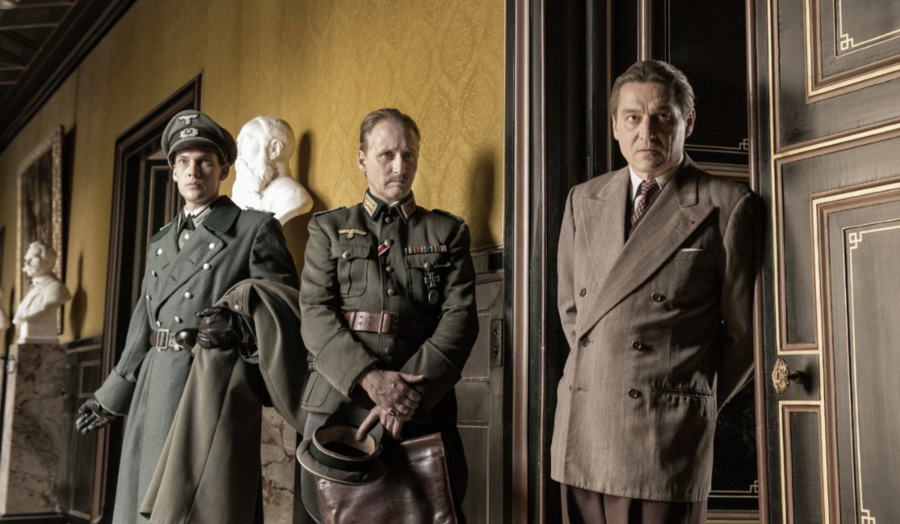Alexander Sokurov’s “Francofonia” occupies a sparsely populated middle ground between documentary and narrative feature; it’s the story of a real place, and two real men, told in a circular, meandering fashion with lashings of cinematic imagination.
That place is the Louvre, Paris’ glorious palace of art; the men are Jacques Jaujard, deputy head of the Louvre during World War II, and Count Franziskus Wolff-Metternich, the Nazi-appointed overseer who arrived at the Louvre in 1940 to find it empty: Jaujard, with his staff, had acted swiftly to whisk the museum’s contents into hiding.
You can find a more straightforward telling of this story in the 2009 documentary “The Rape of Europa.” But Sokurov, who so beautifully plumbed the depths of Russia’s State Hermitage Museum in one glorious, 96-minute tracking shot in “Russian Ark,” has something more ambitious in mind. Blending archival footage, actor re-creation and special effects (sometimes all in the same shot), he creates a sense of specific place and time — and, in doing so, crafts a sort of cinematic ode to art.
Scenes with actors playing Jaujard and Metternich are introduced with a narrator’s voice saying: “Were we to imagine how this took place, might it look like this?” But much of the film is quiet. A question is asked, early on: “Who would we be without museums?” It’s an answer too terrible to contemplate; luckily-and thanks in part to Jaujard-we don’t have to.



